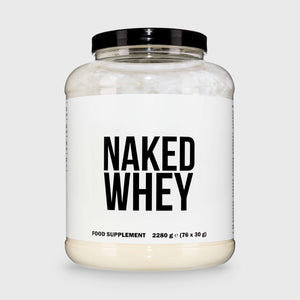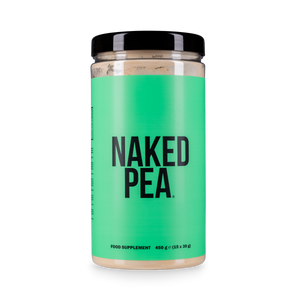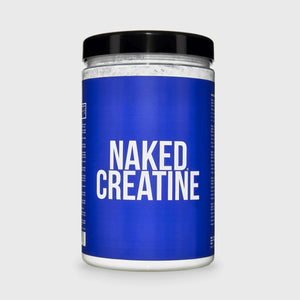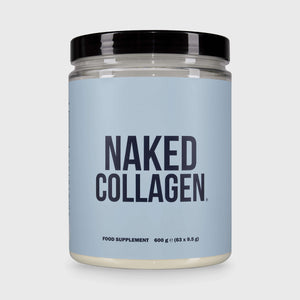Feeling puffy after your post-workout protein shake? You're not alone. Many fitness enthusiasts experience bloating after consuming protein supplements, leaving them wondering if their muscle-building beverage is to blame.
Protein shakes have become a staple in modern fitness routines, offering convenience and efficient nutrient delivery.
However, they can sometimes cause digestive discomfort like bloating. Understanding why this happens and how to prevent it can help you maximize the benefits of protein supplementation without the uncomfortable side effects.
**Disclaimer: This content is for informational purposes only and does not constitute medical advice. Always consult a healthcare provider if you experience ongoing digestive issues or before making changes to your diet or supplement use.
Understanding Protein Shakes and Digestive Health

Protein shakes affect your digestive system in several ways. These supplements, while beneficial for muscle growth and recovery, contain ingredients that interact with your gut's natural processes.
Your body breaks down protein through enzymatic actions, converting it into amino acids for absorption in the small intestine. This digestion process varies in efficiency depending on the protein type and your individual digestive capacity.
Many commercial protein powders contain additives like artificial sweeteners, thickeners, and preservatives. These ingredients, including xanthan gum, carrageenan, and sugar alcohols, can slow gastric emptying and ferment in your gut, leading to gas production.
For example, whey concentrate contains more lactose than whey isolate, potentially causing greater digestive distress in lactose-sensitive individuals.
Your gut microbiome also plays a crucial role in protein digestion. The bacteria in your intestines ferment undigested protein components, producing gas as a byproduct.
Research shows that long-term protein supplementation may alter gut microbiota composition, potentially leading to negative impacts on gut health and contributing to gastrointestinal symptoms (Moreno-Pérez et al., 2018).
High-protein consumption overwhelms some digestive systems, especially when consumed too quickly or in large amounts.
A systematic review on protein and processing of gut microbiota demonstrated that several factors affect the digestibility and bioavailability of protein, including the amount, source, and composition.
These factors can also influence the composition of the gut microbiota, affecting overall human health.
A 40g protein shake challenges your digestive enzymes more than smaller 20g servings, potentially leading to incomplete protein breakdown and subsequent bloating symptoms.
Your hydration status further impacts this process, with inadequate water intake hampering efficient protein digestion and waste elimination.
Common Ingredients in Protein Shakes That May Cause Bloating

Several specific ingredients commonly found in protein shakes can trigger digestive discomfort and bloating. Understanding these problematic components helps you identify potential culprits behind your post-shake bloating experiences.
Whey Protein and Lactose Intolerance
Whey protein's milk origins make it particularly troublesome for those with lactose sensitivity. This milk-derived protein contains lactose, a sugar that approximately 65% of the global population has difficulty digesting after infancy.
When consumed, undigested lactose passes to the colon, where gut bacteria ferment it, producing gases that cause bloating, abdominal discomfort, diarrhea, and nausea.
Even individuals with mild lactose intolerance might experience significant digestive upset from concentrated whey protein supplements.
Research has specifically identified components of milk, such as lactose and proteins like casein, as triggers for gastrointestinal symptoms, particularly in individuals with functional gastrointestinal disorders (Laatikainen et al., 2020).
A randomized controlled trial found that these milk components can significantly contribute to bloating and other digestive discomfort.

Artificial Sweeteners and Sugar Alcohols
Protein powders often contain artificial sweeteners and sugar alcohols like sorbitol, xylitol, and mannitol to improve taste without adding calories.
These sweetening agents resist complete digestion in your small intestine, traveling to the large intestine largely intact. Once there, gut bacteria ferment these compounds, generating gas as a byproduct.
This fermentation process frequently results in bloating, flatulence, and abdominal discomfort, especially when consuming protein shakes containing multiple types of these sweeteners.
A 2022 randomized controlled trial on non-caloric sweeteners (NCS) and gastrointestinal disorder symptoms found that a diet containing NCS increased diarrhea, post-prandial discomfort, constipation, and burning or retrosternal pain symptoms.
Added Fibers and Thickeners
Many commercial protein shakes incorporate fibers and thickeners, such as inulin, guar gum, and xanthan gum, to improve texture and mouthfeel. These additives slow gastric emptying and can be challenging for your digestive system to break down efficiently.
The incomplete digestion of these compounds leads to bacterial fermentation in the colon, producing gas and resulting in bloating.
Fiber additives also draw water into your digestive tract, potentially exacerbating feelings of fullness and abdominal distension after consuming your protein shake.
How Protein Consumption Affects Your Digestive System

Protein consumption significantly impacts your digestive system through complex breakdown processes. Understanding how your body processes protein explains why some people experience bloating after consuming protein shakes.
Protein Digestion Process
Protein digestion follows a multi-stage pathway beginning in your mouth with mechanical breakdown through chewing. Chemical digestion starts primarily in your stomach, where gastric juices containing hydrochloric acid and pepsin are released.
The stomach's acidic environment (pH 1.5-3.5) denatures proteins, unfolding their structure and exposing peptide bonds for enzyme action. Pepsin breaks down these proteins into smaller polypeptides, preparing them for further processing.
The partially digested protein enters your small intestine as chyme, where pancreatic enzymes like trypsin and chymotrypsin continue the breakdown process. These enzymes split polypeptides into tripeptides, dipeptides, and individual amino acids that your body can absorb.
This complex digestion requires significant energy and digestive resources, potentially causing digestive stress when consuming protein in concentrated forms like shakes.
Individual Differences in Protein Metabolism
Your unique digestive capacity plays a crucial role in how efficiently you process protein. Genetic factors determine enzyme production levels and intestinal transit time, affecting how quickly protein moves through your digestive tract.
Some people naturally produce more digestive enzymes, allowing them to break down protein more efficiently without experiencing bloating.
Gut microbiome composition creates another layer of individual variation in protein digestion. Different bacterial populations process undigested protein fragments through fermentation, producing varying levels of gas.
The results of a 2022 systematic review of 29 studies suggest that diet induces rapid alterations in the gut microbial composition.
Protein content, its source, processing methods, and interactions with other nutrients are some of the factors that can regulate the digestion of dietary proteins and metabolites generated by gut microbiota.
This explains why two people consuming identical protein shakes might experience completely different digestive responses.
Previous dietary patterns also influence how your digestive system responds to protein, with your body adapting enzyme production based on typical protein intake levels.
Research has found that athletes using protein supplements report higher rates of gastrointestinal symptoms, such as stomach pain and hunger pain, compared to those not using supplements, highlighting how individual responses can vary (Wardenaar et al., 2023).
Tips to Reduce Bloating When Drinking Protein Shakes

Protein shake bloating can be minimized with simple adjustments to your product choices and consumption habits. These practical strategies help reduce digestive discomfort while still getting the nutritional benefits.
Choosing the Right Protein Type
Selecting the appropriate protein powder for your digestive system significantly reduces bloating risk. If you're lactose intolerant, avoid whey and casein protein powders, which contain milk-derived lactose that ferments in your gut, causing gas and fluid retention.
Plant-based alternatives like pea, hemp, or rice protein work better for sensitive digestive systems. Look for protein powders with minimal artificial ingredients, as sweeteners, emulsifiers, and thickeners often contribute to bloating through bacterial fermentation.
Products labeled "isolate" typically contain less lactose and fewer additives than concentrates, making them gentler on your stomach.
Choose Hydrolyzed Protein Options
Strong clinical evidence supports the use of hydrolyzed proteins for reducing digestive discomfort.
A randomized controlled trial found that partially hydrolyzed casein protein significantly decreased gastrointestinal symptoms, including bloating, flatulence, and heartburn, in subjects with functional gastrointestinal disorders compared to ordinary milk proteins (Laatikainen et al., 2020).
Another study demonstrated that adults with impaired gastrointestinal function showed significant improvements in symptoms like nausea and abdominal pain when consuming hydrolyzed, peptide-based proteins compared to regular protein (Green et al., 2023).
The pre-digested nature of these proteins requires less work from your digestive system, reducing the likelihood of bloating.
Proper Mixing and Consumption Methods
How you prepare and drink your protein shake impacts digestive comfort. Mix protein powder thoroughly to prevent clumping that can cause gas when broken down in your digestive tract.
Use a blender or shaker bottle with a wire whisk ball for 30-45 seconds to ensure complete dissolution. Consume protein shakes slowly rather than gulping them down, as rapid consumption introduces air and overwhelms digestive enzymes.
Start with half-servings to allow your digestive system to adjust, especially when trying new protein products.
Drink adequate water throughout the day—not just with your shake—to support efficient protein digestion and prevent the concentrated protein from drawing water into your intestines.
Consider Prebiotics and Probiotics

Research indicates that incorporating prebiotics and probiotics into a high-protein diet can help maintain gut microbiota stability and reduce gastrointestinal distress.
Studies have found this combination particularly beneficial for older adults, as it can mitigate the negative effects of high animal-based protein intake on gut health (Ford et al., 2017; Ford et al., 2020).
Adding a quality probiotic supplement or consuming fermented foods alongside your protein regimen may help reduce bloating by supporting a healthy balance of gut bacteria that can more efficiently process protein without excessive gas production.
Balance Protein with Carbohydrates
Research suggests that balancing protein intake with carbohydrates can help manage gut microbiota and reduce the risk of gastrointestinal issues.
Excessive protein intake without adequate carbohydrates can lead to adverse effects on digestive health, so maintaining a suitable protein-to-carbohydrate ratio is recommended (Ning et al., 2017).
A 2018 study shows that substitution of whey protein with dextrose and olive oil, instead of whey protein alone, accelerated gastric emptying, which may aid in preventing common digestive discomfort from protein supplementation.
Consider consuming your protein shake with a source of quality carbohydrates, such as fruit, oats, or sweet potatoes, which can help create a more balanced nutritional profile that's less likely to cause digestive distress.
Alternative Protein Sources That Minimize Bloating

Finding protein sources that don't trigger bloating requires understanding which ingredients commonly cause digestive discomfort. Here are several alternatives that typically result in less bloating:
Plant-Based Protein Powders
Plant-based protein powders offer excellent alternatives for those experiencing bloating from whey. These options include:
-
Pea protein: Highly digestible and contains all nine essential amino acids
-
Rice protein: Gentle on the digestive system and hypoallergenic
-
Hemp protein: Rich in fiber but in amounts that support digestion rather than hinder it
When selecting plant proteins, look for products with minimal additives to further reduce bloating potential.
Hydrolyzed Proteins
Hydrolyzed proteins are pre-digested, meaning they've undergone partial breakdown before consumption. This process creates smaller protein molecules that:
-
Absorb more quickly in the digestive tract
-
Reduce the digestive work required by your body
-
Minimize the chance of undigested protein reaching the colon where fermentation can cause gas
Hydrolyzed whey or collagen peptides are excellent options for those seeking quick absorption with minimal digestive distress.
Clinical research strongly supports this approach, with studies showing that partially hydrolyzed milk proteins significantly reduce gastrointestinal symptoms compared to ordinary milk proteins (Laatikainen et al., 2020; Green et al., 2023).
Lactose-Free Protein Options
For those with lactose intolerance, these protein sources eliminate the primary trigger:
-
Whey protein isolate: Contains less than 1% lactose compared to concentrate forms
-
Egg white protein: Completely lactose-free while providing complete protein
-
Beef protein isolate: Dairy-free option with complete amino acid profile
These alternatives deliver high-quality protein without the lactose that causes bloating in sensitive individuals.
Proteins Without Artificial Sweeteners

Protein products without artificial sweeteners and sugar alcohols avoid common bloating triggers:
-
Unflavored protein powders: Add your own flavorings like cinnamon or cocoa
-
Naturally sweetened options: Look for those using small amounts of monk fruit or stevia
-
Single-ingredient proteins: Choose products listing only the protein source without additives
Reading ingredient labels carefully helps identify products without the additives that commonly cause digestive discomfort.
Special Considerations for Athletes
Athletes face unique challenges when it comes to protein supplementation and digestive comfort.
Research has found that protein supplements can exacerbate exercise-induced gastrointestinal symptoms, such as increased intestinal permeability and inflammation (Sihui et al., 2020).
A study on collegiate athletes discovered that those using protein supplements reported higher gastrointestinal symptoms, including stomach pain, compared to those not using supplements (Wardenaar et al., 2023).
This suggests that intense physical activity combined with protein supplementation may require additional digestive support.
If you're an athlete experiencing digestive discomfort from protein shakes, consider:
-
Timing your protein intake further from training sessions
-
Trying specialized formulations like hyperimmunized milk protein, which some research suggests may help mitigate exercise-induced digestive symptoms (Sihui et al., 2020)
-
Starting with smaller amounts of protein post-workout and gradually increasing as your digestive system adapts

When to Consult a Healthcare Professional
Persistent bloating after protein shake consumption often signals the need for professional medical advice. While occasional digestive discomfort is common, certain symptoms warrant attention from a healthcare provider to rule out underlying conditions.
Persistent Symptoms
Digestive issues that persist beyond 2-3 weeks despite modifications to your protein shake routine require evaluation. These persistent symptoms include:
-
Severe abdominal pain that interferes with daily activities
-
Bloating that doesn't resolve with dietary changes
-
Consistent nausea or vomiting after consumption
-
Unexplained weight loss alongside digestive symptoms
-
Chronic diarrhea or constipation following protein intake
The persistence of these symptoms might indicate conditions like irritable bowel syndrome, inflammatory bowel disease, or food allergies rather than simple protein intolerance.
Severe Reactions
Immediate medical attention is necessary if you experience severe reactions after consuming protein shakes. These reactions include:
-
Difficulty breathing or throat tightness
-
Hives or widespread rash
-
Significant swelling of lips, face, or tongue
-
Sudden drop in blood pressure (feeling faint or dizzy)
-
Rapid heartbeat
These symptoms suggest an allergic reaction, which can be life-threatening and requires emergency care.
Underlying Conditions
Consult with a healthcare professional if you have pre-existing digestive conditions before starting protein supplements. Individuals with these conditions need personalized guidance:
-
Inflammatory bowel disease (Crohn's or ulcerative colitis)
-
Irritable bowel syndrome
-
Celiac disease
-
Lactose intolerance
-
Kidney disease
-
Liver conditions
A healthcare provider can recommend specific protein types and formulations compatible with your condition, preventing exacerbation of symptoms.
Diagnostic Testing
A healthcare professional might recommend diagnostic tests to identify the source of your bloating issues. Common tests include:
-
Hydrogen breath tests to detect lactose intolerance
-
Comprehensive metabolic panels to assess organ function
-
Allergy testing for specific protein ingredients
-
Stool analysis to evaluate digestive function
-
Endoscopy or colonoscopy for severe or persistent symptoms
These diagnostic procedures help determine whether your bloating stems from protein shake consumption or indicates a more serious underlying condition.

Conclusion
Protein shakes don't have to leave you feeling bloated and uncomfortable. By understanding how different proteins affect your digestive system, you can make smarter choices that align with your body's needs.
Choose the right protein type, experimenting with hydrolyzed or plant-based options if necessary. Research strongly supports hydrolyzed proteins as a way to significantly decrease bloating and other gastrointestinal symptoms (Laatikainen et al., 2020; Green et al., 2023).
Consider incorporating prebiotics and probiotics to support your gut microbiome (Ford et al., 2017; Ford et al., 2020), and maintain a balanced protein-to-carbohydrate ratio (Ning et al., 2017).
“As a Registered Dietitian, I recommend all my clients include a daily probiotic and prebiotic supplement if they don’t consume dietary sources often. This can help keep a healthy gut and counteract digestive challenges from protein supplementation.”
Pay attention to additives, read labels carefully, and stay well-hydrated throughout the day.
If you're an athlete, be aware that protein supplements may exacerbate exercise-induced digestive issues and adjust your approach accordingly (Wardenaar et al., 2023; Sihui et al., 2020).
Remember that your body is unique. What works for others might not work for you. Start with smaller portions, introduce new products gradually, and listen to your body's signals.
With these adjustments, you'll likely find a protein supplementation approach that supports your fitness goals without the unwanted bloating.
Frequently Asked Questions

Why do protein shakes cause bloating?
Protein shakes can cause bloating due to several factors. The ingredients in protein supplements interact with your digestive system, potentially slowing gastric emptying and producing gas.
Lactose in whey protein may trigger issues for those with intolerance, while artificial sweeteners and sugar alcohols can resist digestion.
Additionally, consuming large amounts of protein quickly can overwhelm your digestive system, especially if you're not properly hydrated.
Research has found that the components of milk, such as lactose and proteins like casein, can significantly contribute to bloating, particularly in individuals with functional gastrointestinal disorders (Laatikainen et al., 2020).
Which protein types are least likely to cause bloating?
Plant-based proteins like pea, rice, and hemp are generally easier to digest than dairy-based options.
Hydrolyzed proteins (pre-digested) offer faster absorption with less digestive work, with strong clinical evidence supporting their use for reducing gastrointestinal symptoms (Laatikainen et al., 2020; Green et al., 2023).
For those sensitive to lactose, consider whey protein isolate (which contains minimal lactose), egg white protein, or beef protein isolate. Always choose products with minimal artificial ingredients and sweeteners to reduce bloating potential.
How can I prevent bloating when drinking protein shakes?
Prevent bloating by selecting a protein type that suits your digestive system, avoiding products with excessive artificial ingredients. Mix your shake thoroughly to prevent clumping and consume it slowly to reduce air intake.
Start with half-servings to allow your body to adjust, and maintain adequate hydration throughout the day to support efficient digestion. Consider taking a digestive enzyme supplement if bloating persists.
Research also suggests incorporating prebiotics and probiotics can help maintain gut microbiota stability when consuming high-protein products (Ford et al., 2017; Ford et al., 2020), and balancing your protein intake with carbohydrates can reduce the risk of gastrointestinal issues (Ning et al., 2017).
Should I take protein shakes on an empty stomach?
Taking protein shakes on an empty stomach can increase the likelihood of bloating for many people. Your digestive system may process protein more efficiently when consumed with other foods that help buffer the protein load.
Consider having your shake with a small meal or snack, or shortly after eating. This approach can help moderate the digestive demand and potentially reduce bloating symptoms.
When should I see a doctor about bloating from protein shakes?
Consult a healthcare professional if you experience severe abdominal pain, persistent bloating despite trying different protein types, consistent nausea after consumption, unexplained weight loss, or chronic digestive issues.
Seek immediate medical attention for symptoms of severe allergic reactions like difficulty breathing or swelling. Those with pre-existing digestive conditions should get personalized guidance before starting protein supplementation.
Can the gut microbiome affect how I respond to protein shakes?
Yes, your gut microbiome significantly influences how you digest protein. The unique composition of bacteria in your digestive system determines how efficiently you break down proteins and which by-products are produced during digestion.
Fermentation of undigested protein by gut bacteria can lead to gas production and bloating. Research shows that long-term protein supplementation may alter gut microbiota composition, potentially affecting digestive health (Moreno-Pérez et al., 2018).
This explains why two people consuming identical protein shakes may experience completely different digestive responses.
Are artificial sweeteners in protein powders problematic?
Artificial sweeteners and sugar alcohols (like xylitol, sorbitol, and maltitol) commonly found in flavored protein powders can cause significant bloating.
These compounds resist complete digestion in the small intestine and undergo fermentation by gut bacteria, producing gas as a byproduct.
Choosing unflavored protein powder or products sweetened with natural ingredients like stevia or monk fruit can help minimize these digestive issues.
How does hydration affect protein digestion?
Proper hydration plays a crucial role in efficient protein digestion. Water helps move protein through your digestive tract and assists with the enzymatic breakdown of protein molecules.
Insufficient hydration can slow digestion, leading to increased fermentation in the gut and subsequent bloating. Aim to drink plenty of water throughout the day, not just when consuming your protein shake, to support optimal digestive function.
How can athletes minimize digestive issues from protein supplements?
Athletes should be aware that protein supplements can exacerbate exercise-induced gastrointestinal symptoms (Sihui et al., 2020).
Research on collegiate athletes has found higher rates of gastrointestinal symptoms among those using protein supplements (Wardenaar et al., 2023).
To minimize these issues, consider timing protein intake away from intense training sessions, trying hydrolyzed protein formulations, incorporating prebiotics and probiotics, and gradually increasing protein intake to allow your digestive system to adapt.
Can prebiotics and probiotics help with protein-related bloating?
Yes, research indicates that prebiotics and probiotics can help maintain gut microbiota stability when consuming high-protein diets and reduce gastrointestinal distress.
Studies have found this approach particularly beneficial for older adults, as it can mitigate negative effects of high animal-based protein intake on gut health (Ford et al., 2017; Ford et al., 2020).
Incorporating these gut-supportive supplements or consuming naturally probiotic foods alongside your protein regimen may help reduce bloating by supporting healthy gut bacteria that can more efficiently process protein.
References
Ford, A., MacPherson, C., Girard, S., Tompkins, T., Tremblay, J., Christman, M., & Dahl, W. (2017). Effects of a high protein diet with and without a multi‐strain probiotic and prebiotic on microbiota and gastrointestinal wellness in older women: a randomized, double‐blind, placebo‐controlled crossover study. The FASEB Journal, 31. https://doi.org/10.1096/fasebj.31.1_supplement.443.8
Ford, A., Nagulesapillai, V., Piano, A., Auger, J., Girard, S., Christman, M., Tompkins, T., & Dahl, W. (2020). Microbiota Stability and Gastrointestinal Tolerance in Response to a High-Protein Diet with and without a Prebiotic, Probiotic, and Synbiotic: A Randomized, Double-Blind, Placebo-Controlled Trial in Older Women. Journal of the Academy of Nutrition and Dietetics, 120(4), 500-516.e10. https://doi.org/10.1016/j.jand.2019.12.009
Green, B., Phillips, M., Green, L., Watson, R., McCallum, A., Brook, S., Oldham, S., Tomlinson, L., Williams, A., Wills, C., Talbot, R., Thomas, R., Barker, J., Lumsdon, A., Morris, S., McMurray, C., Day, C., Price, S., Duff, S., Smith, R., Julian, A., Thomas, J., Fleming, C., Nash, L., Bergin, N., Jones, K., Deprez, V., Capener, R., Hubbard, G., & Stratton, R. (2023). Adults with impaired gastrointestinal function show improvements in gastrointestinal symptoms and protein intake with a high-protein, peptide-based oral nutritional supplement. Clinical Nutrition Open Science. https://doi.org/10.1016/j.nutos.2023.06.002
Laatikainen, R., Salmenkari, H., Sibakov, T., Vapaatalo, H., & Turpeinen, A. (2020). Randomised Controlled Trial: Partial Hydrolysation of Casein Protein in Milk Decreases Gastrointestinal Symptoms in Subjects with Functional Gastrointestinal Disorders. Nutrients, 12. https://doi.org/10.3390/nu12072140
Moreno-Pérez, D., Bressa, C., Bailén, M., Hamed-Bousdar, S., Naclerio, F., Carmona, M., Pérez, M., González-Soltero, R., Montalvo-Lominchar, M., Carabaña, C., & Larrosa, M. (2018). Effect of a Protein Supplement on the Gut Microbiota of Endurance Athletes: A Randomized, Controlled, Double-Blind Pilot Study. Nutrients, 10. https://doi.org/10.3390/nu10030337
Ning, Y., Tian, Y., Wu, Y., & X. (2017). Contributions of the Interaction Between Dietary Protein and Gut Microbiota to Intestinal Health. Current protein & peptide science, 18(8), 795-808. https://doi.org/10.2174/1389203718666170216153505
Sihui, S., Tominaga, T., Kanda, K., Sugama, K., Omae, C., Hashimoto, S., Aoyama, K., Yoshikai, Y., & Suzuki, K. (2020). Effects of an 8-Week Protein Supplementation Regimen with Hyperimmunized Cow Milk on Exercise-Induced Organ Damage and Inflammation in Male Runners: A Randomized, Placebo Controlled, Cross-Over Study. Biomedicines, 8. https://doi.org/10.3390/biomedicines8030051
Wardenaar, F., Schott, K., Mohr, A., Ortega-Santos, C., & Connolly, J. (2023). An Exploratory Study Investigating the Prevalence of Gastrointestinal Symptoms in Collegiate Division I American Football Athletes. International Journal of Environmental Research and Public Health, 20. https://doi.org/10.3390/ijerph20156453






